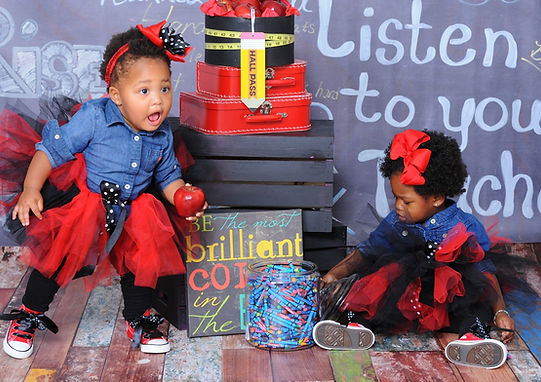“Offering quality childcare in a safe, nurturing & fun learning enivironment”
CALL US: 410-747-4800




OUR PROGRAMS
Infant & Toddler Program
Preschool Program
School- Aged Program
Little Darlings Childcare Learning Center is committed to providing a safe, happy, and nurturing environment for the children in our care. To ensure the health and safety of the children, we arrange the environment to avoid problem situations. We tailor our expectations to fit the development levels of the children to minimize frustrations and inappropriate behavior. Teachers receive ongoing staff training in the area of positive approaches to discipline and strategies to use with challenging behaviors. Children participate in establishing school rules and policies as appropriate. These rules are posted in the classroom using words and pictures.
We do intervene; we do not use corporal punishment, or spanking. A child is never subjected to cruel or severe punishment, humiliation or verbal abuse. A child is never denied food or force feeding as a form of punishment. A child is never punished for wetting, soiling, or not using the toilet. A child is never punished for not taking a nap. We encourage children to develop their own control, autonomy, management of feelings, problem solving, and find their own rewards in cooperative social behavior. The underlying goal of all discipline at Little Darlings Childcare Learning Center is to help children develop inner self-controls to replace adult-maintained external controls. Whenever a conflict arises we support children in finding their own solutions, while also promoting the development of self-control and empathy within each individual child. Teachers set clear, consistent limits and strive to develop close, nurturing relationships with all children enrolled. We avoid the use of the words “no” and “don’t” unless a child is in danger, and even then follow it with a reason, such as “that isn’t safe” or “I can’t let you hit Susan with the block because it hurts her.” School rules mostly relate to health and safety. Teachers avoid ultimatums that force power struggles.
Little Darling’s Childcare Learning Center’s approach to behavior guidance (discipline) is based on the acceptance of a wide range of children’s feelings and encouragement of self-control. Respect for each other and the environment are emphasized through the development of social skills such as turn-taking, helping and cooperation. Children are encouraged, individually and as a group to generate possible solutions to conflicts, to predict various outcomes, and to choose alternative behaviors. We seek to balance the needs of the child for autonomy and individual attention, with the needs of the group for the consistent expectations which embrace a sense of fairness. We work as a team with other teachers and with parents. Parents are encouraged to discuss any questions regarding classroom and behavior management with the classroom teachers and/or director. We analyze possible reasons for the behavior problems and make whatever adjustments in the environment that we can. We offer choices, try to redirect activity, point out natural or logical consequences of different behaviors, help the child individually or in a group to problem solve. We give hugs and words of encouragement.
The following general behavior management strategies are frequently used at the preschool:
-
Positive statements are made which tell the child the correct thing to do. For example: “Turn the pages carefully,” rather than “don’t tear the book!”
-
Positive redirection is used to clarify when and where a certain behavior is acceptable. i.e. “save your running until we go outside” instead of “no running inside!”
-
Feelings are validate, and children are guided to socially acceptable means of expressing anger and frustration, such as using words, tearing newspaper, pounding play dough or a pillow.
-
The “deed” is separate from the “doer,” relaying the message that “I like and accept you unconditionally but I do not like what you did.”
-
Behavior we want to see continued is reinforced. Examples of positive reinforcers include a smile, sticker charts, “thank you,” and other words of encouragement, such as “let’s try it together.”
Sometimes a child may display individual needs that are beyond the scope of our program and/or the expertise of the teachers. If the child’s teacher and the director feel that he/she would benefit from additional services, they will notify the parents and make recommendations. We partner with parents to ensure that each child’s needs are met within the program setting when possible and appropriate.
Discipline Policy
For many people, discipline has only negative connotations. Some may regard it as punishment. If we look at the source of the word “discipline”, however, we find it has a very positive meaning. To discipline means “to teach.” It is a learning experience – something we do with children not to children.
Children have to learn how to take care of themselves and live in a world with other people. Through discipline, we teach self-control and responsibility. Teaching discipline is one of our most important jobs. Little Darlings Childcare Learning Center is committed to providing quality learning experiences for all children.
All staff members, including volunteers are responsible for using positive discipline techniques with children. Any effort to cause emotional or physical harm, (i.e.: shaming, degrading, slapping, grabbing, pushing, pinching, etc.) to any child (including the adults own child) is prohibited. Staff members are responsible for helping parents and other volunteers to develop positive discipline techniques.